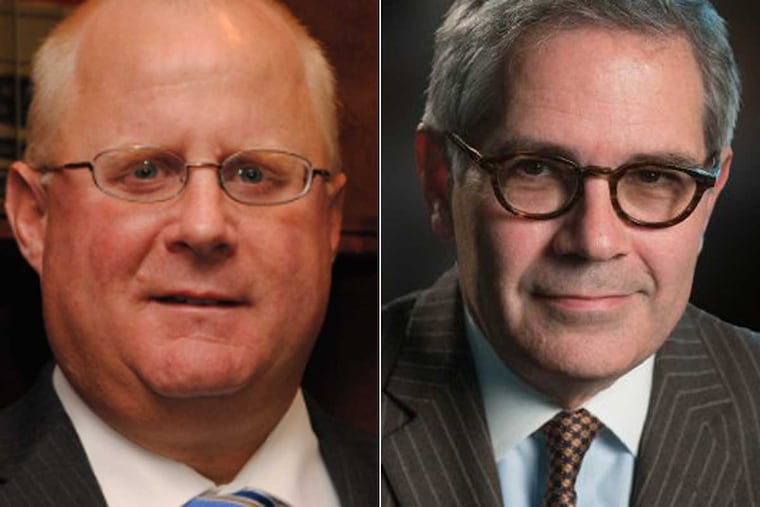Philly DA’s Office won’t prosecute cannabis users for DUI unless they are actually stoned
The president of the Pa. District Attorneys Association testified Monday at a joint commission in Harrisburg. Krasner had none of it.

The Pennsylvania District Attorneys Association testified against legalizing cannabis for adult recreational use at a hearing in Harrisburg Monday, eliciting a stinging response disputing the association’s claims from Philadelphia District Attorney Larry Krasner.
“Recreational marijuana is not safe or harmless,” Association president John Adams told a joint hearing of the Democratic Policy Committees. “Our opposition stems from science, research and data, as well as information from our addiction specialists.”
Rejecting the association’s claims, Krasner called it the group that “gave us an 800 percent increase in jail population” and also called Pennsylvania’s current cannabis laws “dumb.”
The District Attorneys Association is "not relying on science,” Krasner said at the joint hearing. “They’re relying on pseudoscience, which has been a well-funded industry to prosecute this, because people make money — including criminal defense attorneys — make money when it is prosecuted.”
Adams and Krasner are former criminal defense attorneys.
Krasner said his office will not prosecute cannabis DUIs “unless people show active — I repeat, active — psychoactive amounts of cannabis in their system that rise to a level which has generally scientifically been agreed upon as affecting driving.”
It is unclear what that level might be. Tests can only detect the level of THC metabolites in the blood, but not determine intoxication.
Adams said that states where marijuana has been legalized for adult recreational use are seeing “negative consequences.” Legalization has not ended the black market and tax revenues from marijuana sales have not outweighed the costs, which he said were drugged driving, absenteeism, and drug treatment.
Adams also said that legalized states have experienced “significant increases” in the number of fatal crashes in which marijuana use has been implicated.
Krasner dismissed that claim vigorouslyand blamed the District Attorneys Association for propagating the myth of cannabis-caused crashes.
“What that law currently says is that if there is any detectable amount of digested marijuana in your system, then you are DUI,” Krasner said. "So in other words, if I smoked a joint 30 days ago, it has absolutely no psychoactive effect whatsoever on anything I am doing, and I drive a car, then I am driving under the influence. This is absurd.
“It has been the law in Pennsylvania forever. It is on a collision course with our medical marijuana, which is going to tell people medically it’s OK for you to take this for the various neuropathy or other forms of disease that you have, but somehow you can’t drive. It’s absurd and it’s indicative of what we have gotten from the Pennsylvania District Attorneys Association.”
Patrick Nightingale, an attorney and cannabis advocate from Pittsburgh, testified that though fatal crashes linked to a detectable amount of THC metabolite in the blood more than doubled in Colorado from 2013 to 2017, it was because Colorado only recently began testing for THC in all DUI investigations.
Adams said the District Attorneys Association supports legislation to decriminalize the possession of small amounts of marijuana. “Such legislation would help clear cases from the criminal docket and allow law enforcement officials to focus on other matters.”
“We consider this a smart, commonsense approach,” said Adams, the district attorney for Berks County.
Follow Inquirer’s complete coverage of cannabis and medical marijuana at Philly.com/cannabis